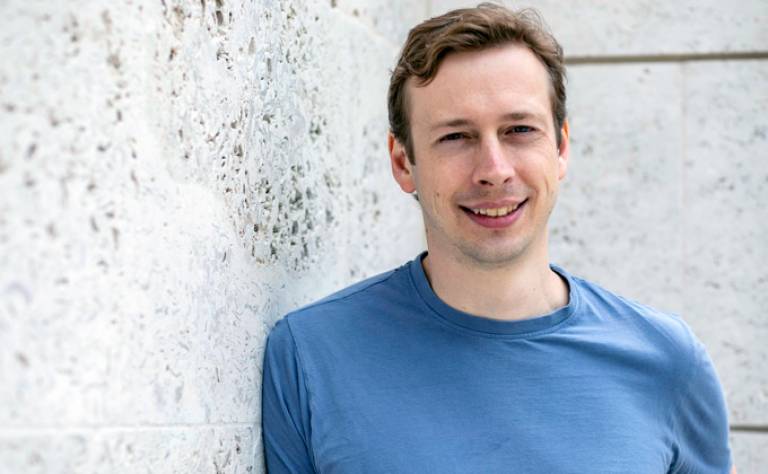Dr Toby Cubitt receives the Whitehead Prize 2019
4 July 2019
The prestigious award has been given in recognition of his outstanding contributions to mathematical physics.

Last week the London Mathematical Society has awarded Dr Toby Cubitt, associate professor in Quantum Information at University College London, the Whitehead Prize in recognition of his outstanding contributions to mathematical physics, in particular the interconnections between quantum information, computational complexity, and many-body physics. From the 1990s, Moore and Penrose pioneered undecidable physical dynamics. While these results concern classical physics, Feynman's observation (1982) of the computational complexity of quantum physics initiated quantum computing, eventually leading to the deep investigations of Kitaev et al. into “quantum-NP” problems, which precisely characterise the hardness of estimating the ground energy gap in a finite many-body system, which is well above NP-hard.
In the last few years, Cubitt has made several spectacular advances in this field. His most outstanding single result is the proof that deciding whether or not a 2D-square-lattice, nearest-neighbour, translation-invariant Hamiltonian of interacting spins has a ground energy gap, is an uncomputable problem in the Turing sense. Cubitt’s construction is a veritable mathematical tour de force. Although the “spins” are not two-level systems but of dimension d≫1, the implications for condensed matter physics are profound. We can no longer naïvely assume that we can understand a system’s basic properties just because it “looks simple”, moreover the construction also implies that every mathematical question is equivalent to computing the gap of a suitable 2D-lattice system. A truly remarkable result! Cubitt has also been making a case for seriously considering the further possibility that other questions in quantum information are undecidable, as for instance, whether a quantum state has distillable entanglement or whether a channel has positive quantum capacity. These ideas are complemented by his numerous findings further down in the computability hierarchy, among them the complexity classification of “all” local Hamiltonians (with Ashley Montanaro), and his proof (with Jens Eisert and Michael Wolf) that the so-called Markovianity problem in dynamics is NP-hard, in both the classical and quantum cases.
You can read more about Dr Cubitt's research on his group webpage. Image: Dr Toby Cubitt (Credit: A.Abrusci, UCL).
 Close
Close

